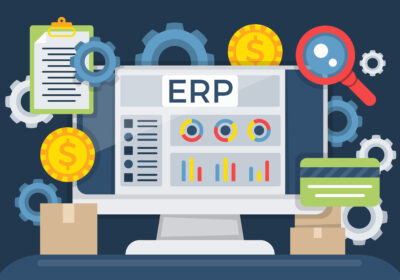In today’s competitive business landscape, streamlining operations and optimizing data flow are crucial for success. Enter Enterprise Resource Planning (ERP) systems – powerful software solutions that integrate various departments within a company, fostering information sharing and process automation. But with a plethora of ERP software options available, choosing the right system can be overwhelming. Let’s explore the different types of ERP systems to guide you on your selection journey.
Categorizing the ERP Landscape
ERP systems can be broadly classified based on several key factors:
- Deployment Model:
- On-Premise ERP: Traditionally, ERP systems were installed and maintained on a company’s own servers. This offers greater control but requires significant upfront investment and ongoing IT expertise.
- Cloud ERP: Cloud-based ERP systems are hosted on a remote server by the vendor. This eliminates the need for on-site infrastructure and offers scalability, with subscription-based pricing models.
- Hybrid ERP: This combines elements of both on-premise and cloud deployments, allowing companies to leverage the benefits of each model based on their specific needs.
- Industry Specificity:
- Generic ERP: These cater to a wide range of industries and offer core functionalities like finance, accounting, human resources, and supply chain management.
- Industry-Specific ERP: Tailored for specific industries like manufacturing, healthcare, or retail, these systems offer specialized features and workflows that cater to the unique needs of those sectors.
- Company Size:
- ERP for Large Enterprises: These robust systems cater to complex needs of large corporations with extensive functionalities and customization options.
- ERP for Small and Mid-Sized Businesses (SMBs): Designed for affordability and ease of use, these systems offer core functionalities with simpler interfaces suitable for SMBs.
Choosing the Right ERP System: A Strategic Decision
Selecting the right ERP system requires careful consideration. Here are some key factors to ponder:
-
- Your Industry: Industry-specific features can significantly enhance efficiency and productivity.
- Company Size and Needs: Evaluate the functionalities you require based on your business scale and complexity.
- Deployment Model: Consider factors like budget, IT expertise, and scalability needs.
- Scalability: Ensure the system can adapt to your future growth plans.
- Budget: Factor in licensing costs, implementation fees, and ongoing maintenance expenses.
Partnering for Success: The Role of an ERP Service Company
Choosing and implementing an ERP system can be a complex undertaking. Partnering with a skilled ERP service company like Verbat Technologies, a leading ERP company in Dubai and the UAE, can be invaluable. Verbat Technologies possesses the expertise to:
-
- Analyze your business needs and recommend the best-fit ERP system.
- Provide implementation and customization services to tailor the system to your specific workflows.
- Offer ongoing support and maintenance to ensure optimal system performance.
By leveraging the experience of an ERP company in UAE, you can ensure a smooth transition and maximize the benefits of your ERP system.
Conclusion
Understanding the different types of ERP systems empowers you to make informed decisions. By carefully evaluating your needs and partnering with a reliable ERP service company, you can unlock the true potential of these powerful tools and drive your business towards greater efficiency and success.
Ready to streamline your operations and unlock the power of ERP? Contact Verbat Technologies today for a free consultation. Our ERP experts will help you navigate the selection process and find the perfect fit for your business needs. Visit our website at https://www.verbat.com/ or call us at [phone number] to get started!





